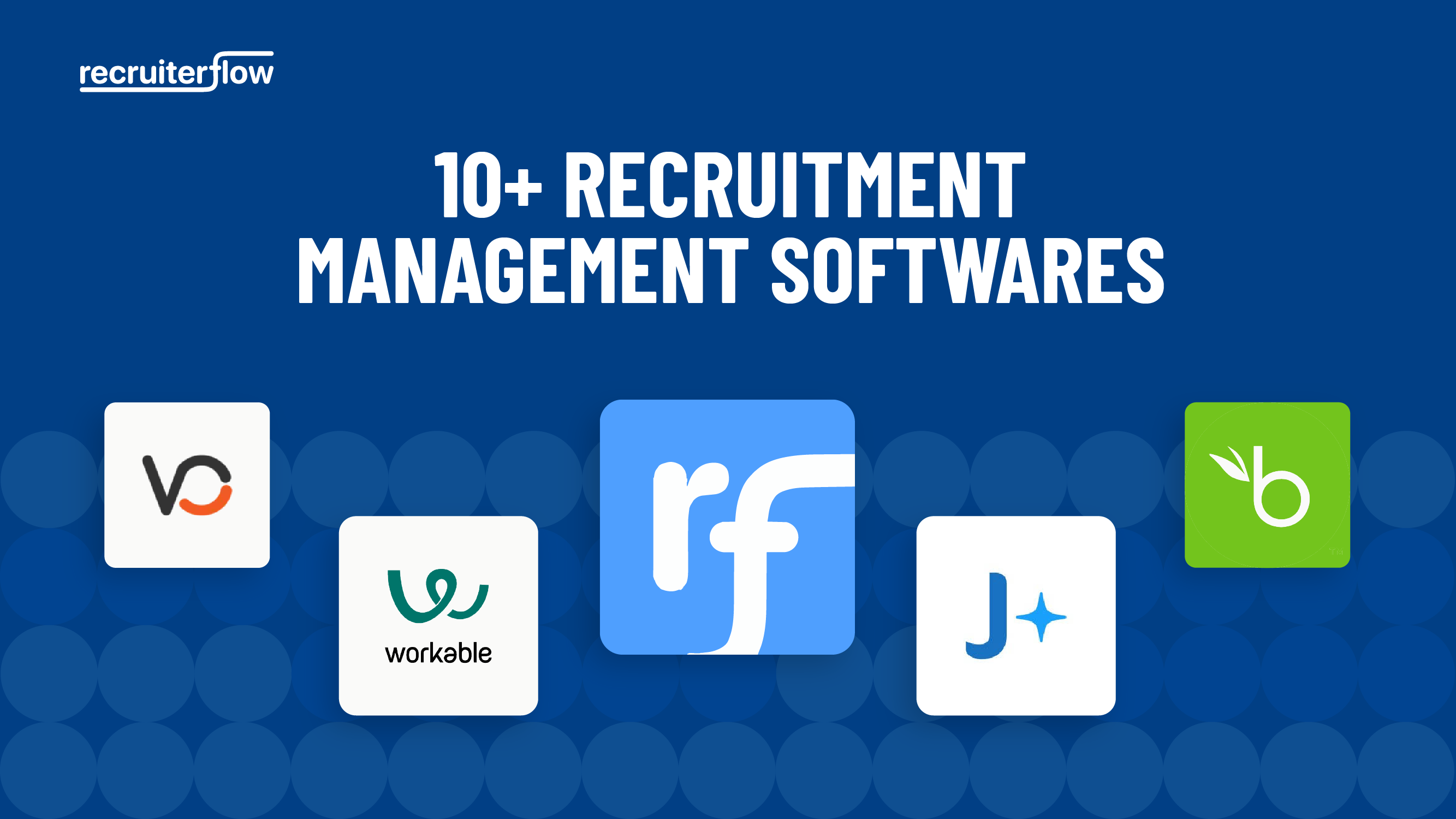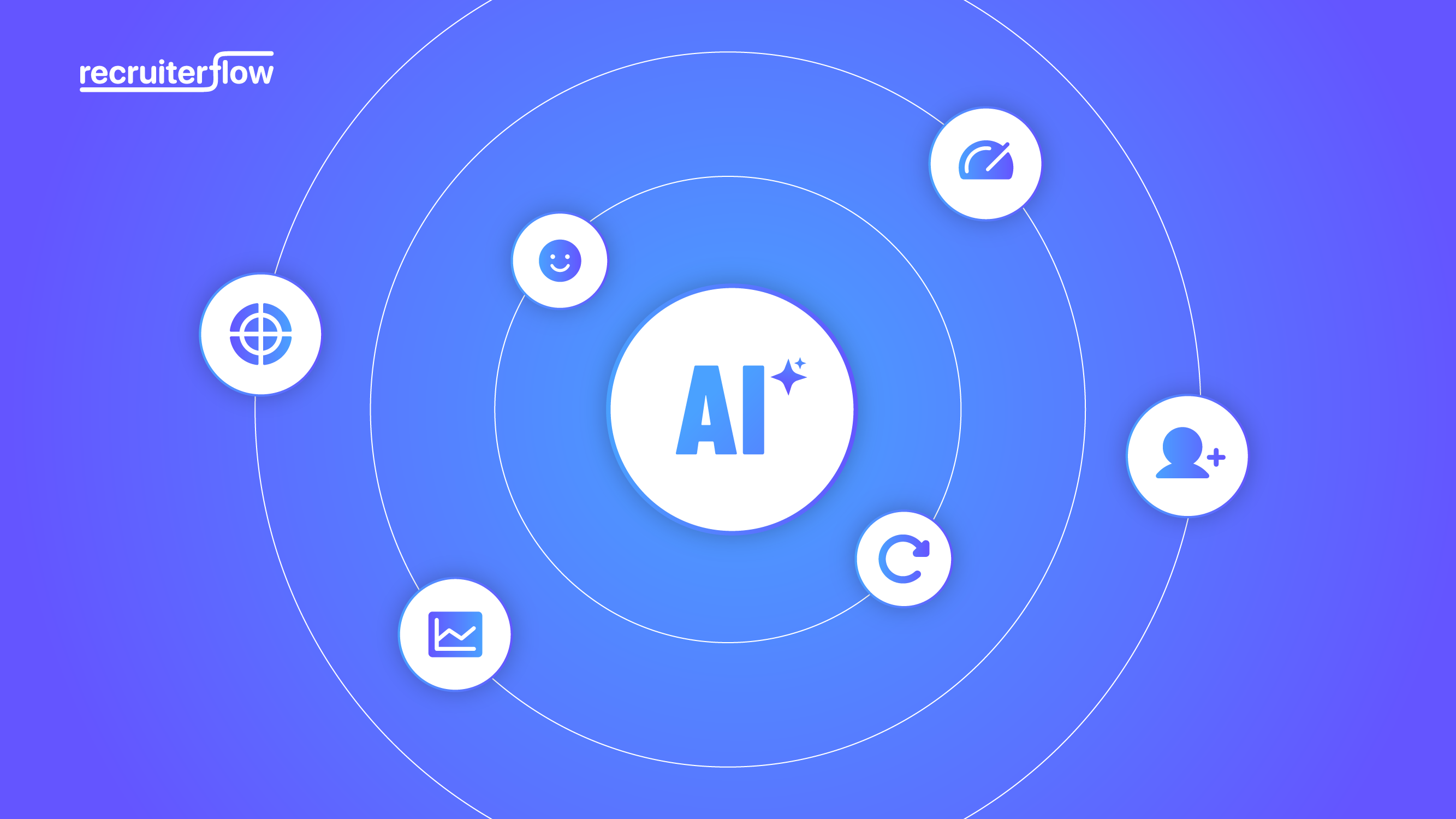
The Ultimate Guide to Recruitment Process Outsourcing (RPO)

Adding recruitment process outsourcing (RPO) services to your portfolio can transform your agency from a traditional recruiter into a strategic partner. It’s how you can meet your clients’ diverse needs, while also scaling your business.
This guide explores the ins and outs of RPO—from its various models and benefits to implementation strategies.
What is recruitment process outsourcing (RPO)?
Recruitment process outsourcing (RPO) is a strategic business model where recruitment agencies manage some or all aspects of their clients’ hiring processes. This often includes:
- Handling the end-to-end hiring process
- Creating recruitment plans and executing them
- Taking over specific hiring functions, such as job advertising, candidate sourcing, interviewing, and even payroll management
Today, RPO has evolved beyond simply supporting foundational hiring processes. In fact, many RPO providers are now keen on bringing a more holistic expertise that ranges from Talent Acquisition advisory to employer branding, and diversity, equity, and inclusion (DEI) efforts.
Also, read our blog on DEI Interview Questions and Answers Recruiters Should Ask
RPO vs. other recruitment business models
There are two ways companies usually associate with a recruitment agency:
- Retainer or contingency contracts: Clients pay recruitment agencies the fees for each placement (in advance or upon successful placement). For both models, agencies pay their recruiters a set commission based on the recruitment commission structure with or without a base salary.
In both models, agencies provide their recruiters with a fixed commission according to the recruitment commission structure with/without a base salary. The company’s hiring managers are engaged and responsible for the entire project—an agency, on the other hand, is solely concerned with filling a role.
- RPO-based contracts: The main premise of operating an RPO service delivery model is that an RPO service provider will act as an entity that is virtually part of the client’s organization. Recruitment managers are reactive, focused on learning about the hope’s organizational climate, getting to know the employer organization, and developing and storing human resource policies for future use.
In some cases, agencies opt for a half retainer half RPO service model, while setting a fixed fee for their RPO services. This allows them to offer a comprehensive recruitment service that can adapt to the specific needs and goals of their clients.
Now, coming to answer a burning question: why do you even need to offer RPO services, especially when you have a contingency-based model?
The answer is simple. The contingency-based recruitment model is hard to scale after a point. Since the model is transaction-based, revenue is tied directly to successful placements. This can limit growth as the agency reaches capacity in terms of client management and recruiter bandwidth.
Moreover, agencies working on a contingency basis face significant revenue fluctuations, as income depends entirely on successful candidate placements. This lack of predictability can make financial planning challenging, especially during periods of low hiring activity.
Adding an RPO-based service can help your agency scale and build diverse revenue streams.
“We segued from contingency into RPO, as we wanted to have enough consistency to add people to our team. The only way you can do that is through contractual means where you can sign a contract for a year and bring on more recruiters on the team.”
Suzie Grieco, Co-Founder of SG2 Recruiting (Guest speaker at The Elite Recruiter Podcast)
Switching to an RPO model for recruitment has a huge advantage, as Suzie’s example proves that it enables recruitment agencies to concentrate on strategic HR tasks. This means they can organize and strategize better and work with a company’s long-term objectives as opposed to meeting the organization’s short-term staffing requirements.
By using technology and improving their processes and recruiting operations, agencies can find better candidates more efficiently. This leads to more successful placements and a stronger relationship with clients.
Benefits of recruitment process outsourcing for agencies
Introducing RPO services in your portfolio can be beneficial for your business in many ways.
- Predictable revenue and workload: Since it’s a long-term partnership, it enables more efficient resource planning and management within your agency.
- Diversified revenue stream: RPO services thus offer an extra source of income, create more than one income earner, and provide a statement of income other than the traditional recruitment fees. This can prove to be more effective in the instances when the more conventional recruitment strategies might be less active due to a poor economy.
- Attracts bigger clients: To make a better transitional change you are in a position to position your agency as a strategic partner not merely having recruitment as a sector. It is useful in targeting and attracting the big clients who need big solutions done in recruitment hence improving your agency’s status.
How does the recruitment process outsourcing work?
The RPO process involves outsourcing a company’s recruitment processes with the help of an external vendor covering both present and future talent acquisition aspirations.
Here’s how the process typically unfolds:
- The RPO provider begins by thoroughly understanding the client’s business, culture, and hiring needs. This involves assessing current talent requirements and anticipating future demands.
- They develop a tailored recruitment strategy that aligns with the client’s objectives. This strategy outlines the scope of services, timelines, key performance indicators (KPIs), and the technology stack to be used.
- They integrate with the client’s existing HR and recruitment teams. They may set up on-site or work remotely, depending on the client’s preference. The RPO provider also integrates their technology platforms with the client’s systems to ensure seamless data flow and communication.
- From offer letter creation, and communication with the candidates, to handling any necessary negotiations to ensure successful offer acceptance, they take care of everything in between and more!
- They also facilitate the onboarding process whereby new employees are introduced to enhance their integration into the company’s operations. This includes getting in touch with other departments to agree on where and how workspaces and IT shall be provided, as well as the first training sessions.
- They continuously monitor recruitment metrics and KPIs.
- The most common form of payment is monthly payments. There are also contracts where a certain percentage is paid upfront, and the remainder is paid upon hire.
What are the major types of recruitment process outsourcing?
There are many ways in which you can customize your RPO services based on your client’s requirements and your bandwidth. Each type of RPO service provides unique benefits and is designed to address specific challenges faced by organizations in their talent acquisition efforts.
End-to-end RPO
This is the most common type of RPO outsourcing where the RPO vendors have total responsibility for the entire sourcing processes of a specific job and closing the payroll without the involvement of the client’s human resource department.
This not only makes you an ‘only’ source of supply to your clients but also sets your agency out of the traditionally defined recruitment agency.
Also, note that this model is the most complex of all RPO models to implement. Setting up may require an initial investment in technology, training, and staffing. Moreover, as you take on more responsibilities through RPO services, there is a risk of overextending your agency’s resources. It’s important to manage growth carefully to maintain quality and client satisfaction.
You can also check out our guide on Recruitment 360 and strategic recruitment plans to enhance your hiring strategy.
Project-based RPO
Like end-to-end RPO, project-based RPO is also somewhat similar but the approach is constrained to the line of business or a certain role. It is actually more of a short-term cooperation where you can provide the recruitment services that are most appropriate for certain projects like product introduction or expansion to a new branch. In these cases, product operations often plays a crucial role in aligning recruitment efforts with product timelines, team needs, and go-to-market strategies—especially when supported by project timeline software that improves visibility and coordination.
Recruiter on-demand
Recruiter on-demand is more of a flexible and agile solution that meets the urgent staffing needs of your clients. You offer them immediate access to skilled recruiters from your team who can integrate seamlessly with their teams.
Whether your clients require short-term support or long-term recruitment solutions, ROD services can adapt to any volume or urgency of hiring demands. Also, it is cheaper than conventional recruitment agencies so a company can employ various ways of searching for competent employees.
Considering the availability of on-demand recruiting tools, your agency can effectively assist clients in significantly decreasing the time taken to hire, in addition to the costs incurred from open positions, which are key factors in competitiveness.
Hybrid RPO
This is a partial outsourcing option because while the company hires a vendor RPO to assist in recruitment, it still has a fully operational internal recruitment department. You can learn about your client’s in-house team and reduce the time to fill because the strengths of both the agency and the in-house team complement each other.
What are the services covered under RPO?
While the most common type of RPO service i. e. end-to-end RPO includes everything from sourcing to payroll management, you can definitely customize your offerings by adding the following services to your stack:
- Job advertising: You will be responsible for the advertisement of your client’s jobs on various channels in a bid to attract the right talent. This involves the posting of well-developed job descriptions and advertising these posts on different job posting sites, social media platforms, and other related forums.
- Resume screening: I will significantly use powerful recruiting AI tools and technologies including artificial intelligence and machine learning; you will sort through the numerous resumes and shortlist excellent candidates with minimal chances of selecting the wrong talent thus saving ample time and resources for the hiring group.
- Candidate sourcing: Candidate sourcing methods that you will use include database searches, social networks, and word of mouth to source qualified lists of candidates. Such solutions guarantee a constant flow of people, as well as the possibility to attract candidates for positions that can be rather challenging, and thus, enable organizations to stay relevant in the talent acquisition sphere.
- Candidate interview: You will be also involved in screening candidates because you will schedule and conduct the first round of interviews. Also, you shall meet with the hiring managers to review standard interview practices and make choices with respect to set standards involving competencies and company values.
- Candidate hiring: Recruitment refers to the process of identifying, attracting, selecting, and placing the right candidates on the organization’s payroll. He/she will be drafting offer letters, performing reference checks, and managing the process of the candidate’s turning into an employee.
- Payroll management: In this role, you will be solely responsible for the administrative part of the employee remunerations or wages. This also encompasses matters to do with salaries: calculation, deductions, adherence to tax, and legal provisions touching on labor. Many clients who outsource payroll management as part of an RPO package report significant administrative time savings and reduced compliance risks.
Moreover, you can also offer additional help with managing their applicant tracking software, and their entire recruitment suite and ensuring legal compliance.
Ready to offer recruitment process outsourcing to your clients?
As a recruitment agency, embracing Recruitment Process Outsourcing (RPO) services can significantly enhance your service offerings and position you as a strategic partner for your clients.
By integrating RPO into your business model, you can offer scalable solutions that address your clients’ complex and evolving hiring needs, enabling them to focus on their core business objectives while you manage their recruitment challenges.
Have you thought about upscaling your service offerings yet?
Recruitment



Abhishek Sharma